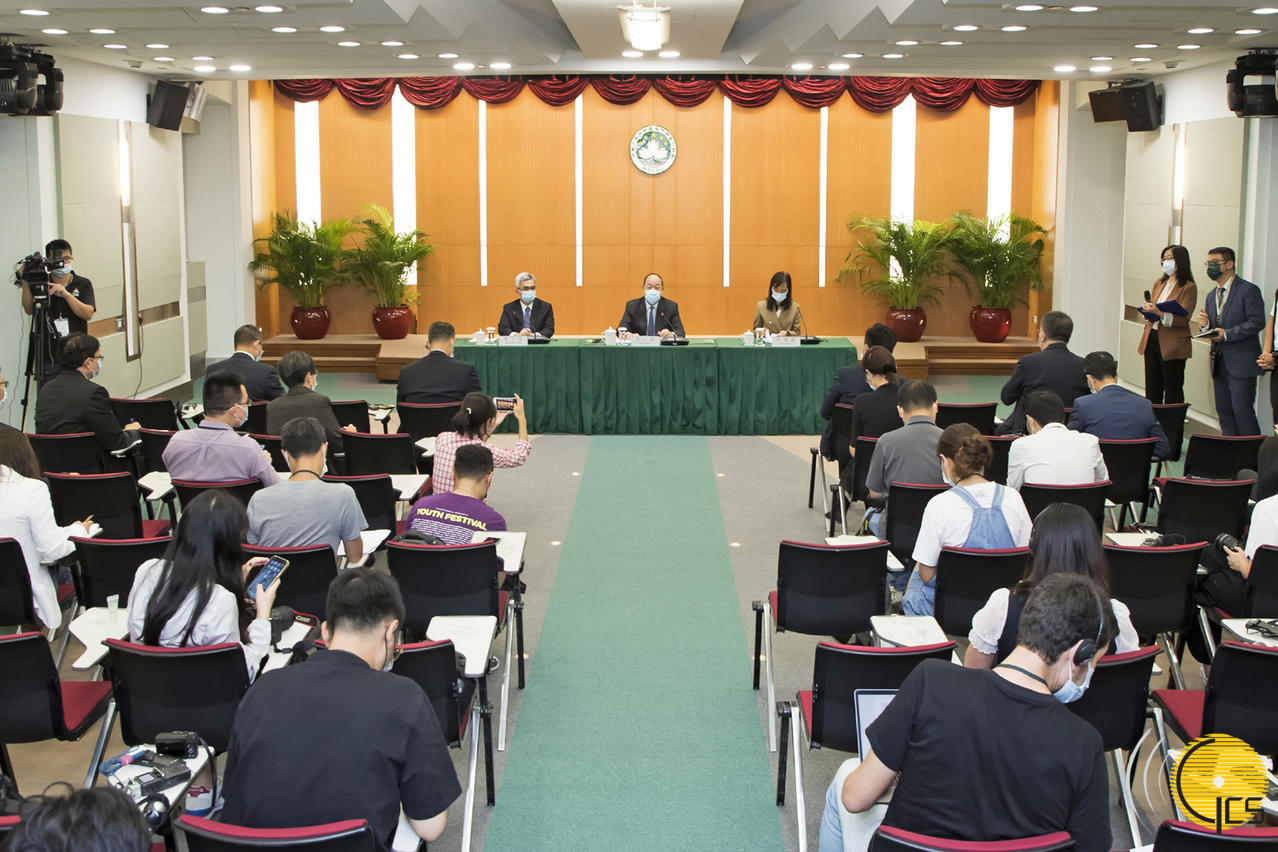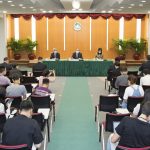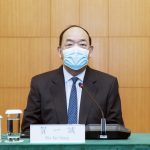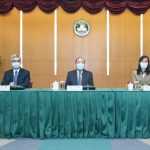 The Government holds a press conference to give updates on the epidemic control and prevention work.
The Government holds a press conference to give updates on the epidemic control and prevention work.
The Government is making its utmost efforts to be able to resume quarantine-free travel to Zhuhai by 1 October, if possible. It would depend on stability being achieved with regards to the COVID-19 situation in Macao.
The Chief Executive, Mr Ho Iat Seng, made the remarks to reporters today during a press conference on the latest epidemic control and prevention work. Also attending the press conference were the Secretary for Security, Mr Wong Sio Chak, and the Secretary for Social Affairs and Culture, Ms Ao Ieong U.
A resumption of quarantine-free travel to Zhuhai would be with the aim of providing convenience to those members of the Macao public living in Zhuhai, including Macao non-resident workers, Mr Ho added.
Under existing measures, people travelling from Macao to Zhuhai are required to provide a nucleic acid test certificate – issued within 24 hours prior to arrival – proving they are ‘negative’ for COVID-19 infection; as well as undergoing a 14-day medical observation in Zhuhai. The measures remain in place until the stroke of midnight on Friday (1 October).
The Government launched a second round of citywide nucleic acid testing at 3pm on Saturday (25 September). The programme ran until 3pm on Tuesday (28 September). The Chief Executive noted that 645,230 people were tested, and all were recorded as ‘negative’ for COVID-19 infection. In addition, 44,536 people produced a ‘negative’ result from tests conducted within a 24-hour period prior to the launch of the programme.
Currently, there were still few hundred people that had not yet participated in the citywide testing. The tally included bedbound people with chronic medical conditions, or people with reduced mobility. The Government has sent outreach teams to test those individuals. The Government additionally tried to contact dozens of people who were not in Macao during the period of the testing programme.
The Chief Executive also talked about the impact on the approaching Golden Week holiday, starting on Friday (1 October), wrought by the new COVID-19 cases linked to an imported COVID-19 infection. He noted that the local economy, including revenues from the gaming industry, and business for small and medium-sized enterprises, might be affected. The Government would continue to roll out in a proactive manner, as was its policy, promotional work, in order to attract a greater number of tourists to Macao, he added. Mr Ho has directed the Secretary for Economy and Finance, Mr Lei Wai Nong, to analyse in details the impact to the overall economy caused by the latest epidemic-related development.
Mr Ho went on to say that the local vaccination ratio was a crucial element in any relaxation of restrictions on people visiting Macao. If the city had at least 80 percent of its populace fully vaccinated, the Government would then be able to discuss with mainland authorities the resumption of group tours from the mainland to Macao, and the restarting of the electronic application process for visas under the facilitated individual travel scheme. These efforts would be significant steps towards revitalising the local tourism industry and the economy, Mr Ho stated.
The COVID-19 vaccination ratio in Macao currently was around 51 percent of the population. That was the lowest level of any city across the country, said Mr Ho. He called on those who had not received a jab, to do so at the earliest opportunity. Inoculation stations had been reopened after the completion of the citywide nucleic acid testing, and vaccination was open to all, without prior appointment. The vaccines against COVID-19 were evaluated to be highly safe and effective in terms of reducing severe illness and even preventing death, judging from statistics since the launch of vaccination domestically and globally.
Macao has confirmed, since 24 September, a total of six new COVID-19 cases as of today. All were linked to an imported COVID-19 infection, and the individuals infected worked, respectively, as guards either at Golden Crown China Hotel, or the nearby Treasure Hotel, two facilities designated by Macao for medical observation. With the new cases, Macao had recorded a total of 71 cases since the early stages of the pandemic alert in 2020.
The new cases were likely to be due to people not fully following anti-epidemic guidelines for hotels designated for medical observation. Despite the Government providing sufficient protective gear, some had not used it for proper protection. Mr Ho said he understood people might experience anti-pandemic fatigue, after such a long time fighting against the disease. The Government had conducted reviews, and proposed optimisation steps regarding countermeasures. Mr Ho said he was discussing with the Secretary for Security regarding the feasibility of asking the police to oversee implementation of anti-epidemic measures at hotels used for medical observation, he added.




